Ramzan Far From Home – Indian Muslims in the Gulf
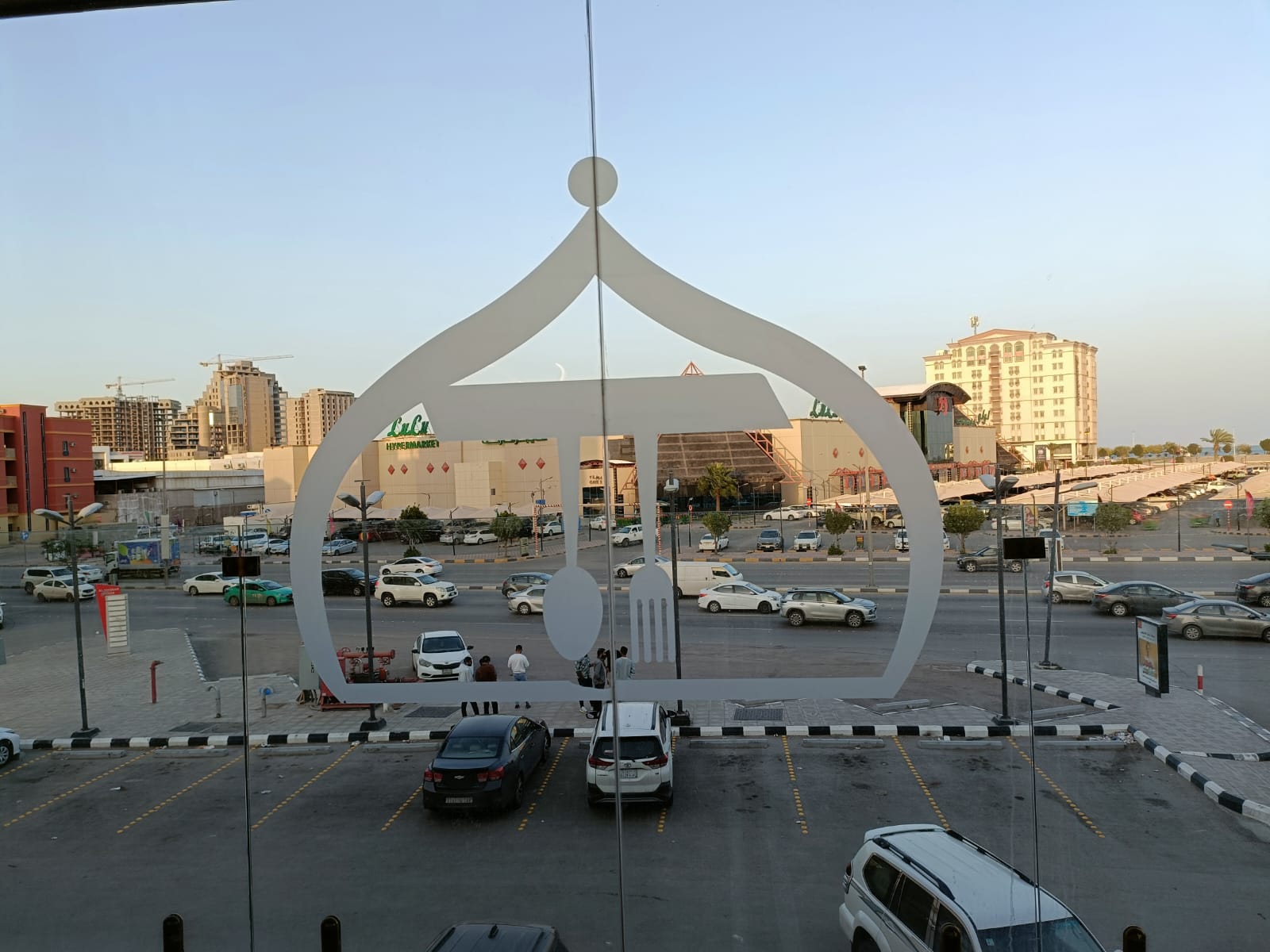
Dammam (Saudi Arabia): For the past three years, the month of Ramzan in the Arabian Peninsula has coincided with the winter season, making it somewhat easier for the rozedars (those who are observing fast) compared to the extreme heat that usually prevails in the region.
TwoCircles.net spoke to people from different walks of life to learn how they spend the holy month away from their homeland, India.
"Fortunately, for us, the working hours change during Ramzan. The afternoons are off, so we come home from work to rest. Then we wake up to offer the Asar prayer and prepare for iftar. There are many masjids (mosques) nearby, so we can easily walk over to offer prayers. Afterward, we return home to read the Quran or have a light meal, before heading back to the masjid for Tarawih prayers," said A (name withheld on request), a resident of Hyderabad who has been living in Saudi Arabia for the past 10-12 years.
He works as an engineer and lives with his family. His workday begins at 6 a.m. and finishes at 12 p.m.
However, not everyone enjoys such flexibility. B (who also did not wish to be named), an employee at an Indian airline in Dammam, has to work eight to ten hours a day. He lives far from the airport and has a long commute to work. His shifts vary every week, and on days when he works the night shift, he does not have time for suhoor — he typically manages with just a glass of water or juice.
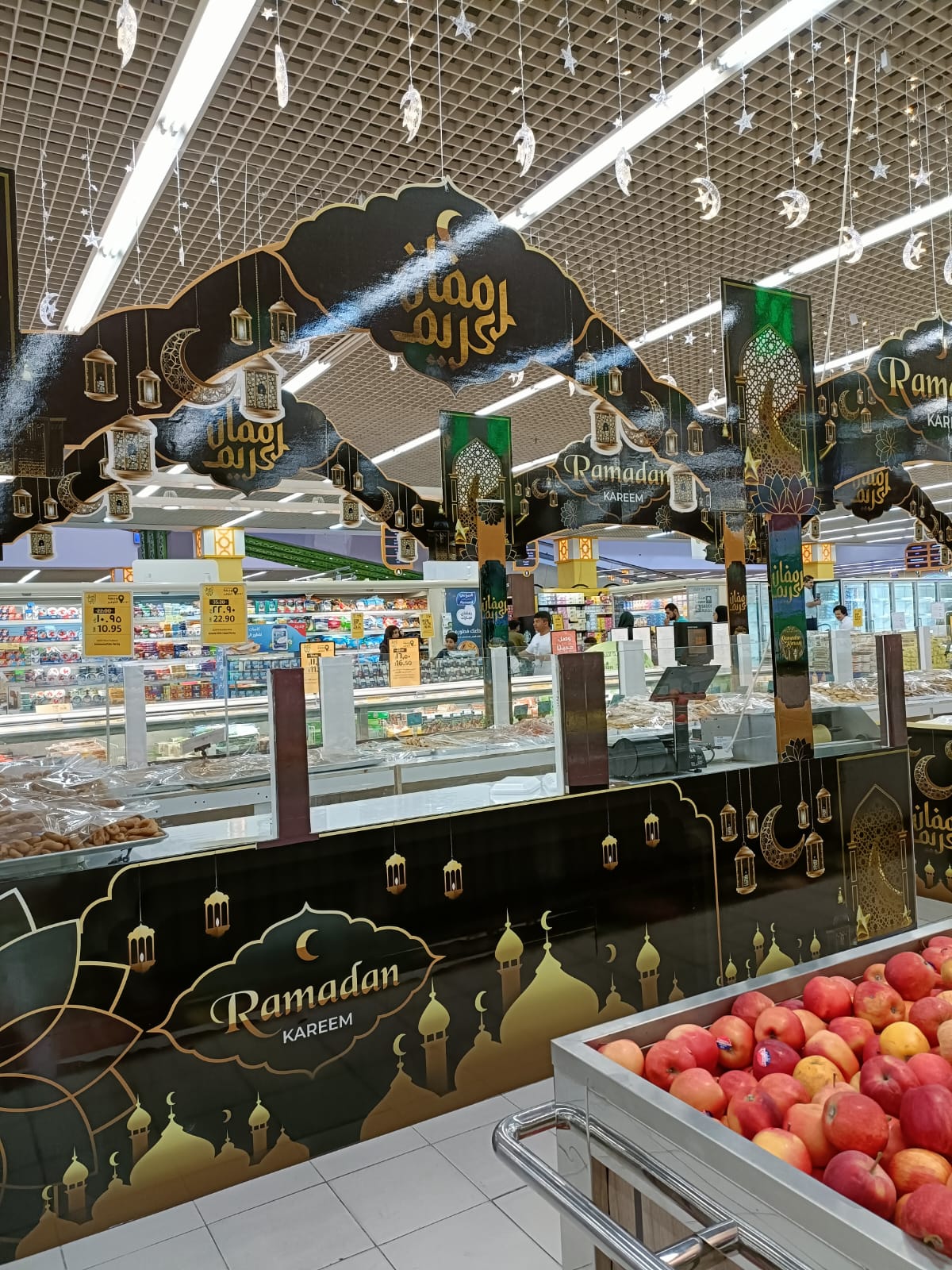 The food section inside a mall Photo credit: TCN correspondent[/caption]
The food section inside a mall Photo credit: TCN correspondent[/caption]
"But since I sleep during the day, I do not find it that difficult. When my shift is during the day, I have suhoor with my parents at home, leave for work and return after iftar. Iftar is usually with my fasting colleagues," he explained.
D, who works as a manager at an Indian restaurant in Al Khobar, said, "Ramzan is one of the busiest times for us, even though the restaurant is closed during the day. We host iftar buffets and iftar parties, so the kitchen staff is kept busy preparing snacks, fruit juices and other delicacies for dinner. It is an elaborate spread with dishes like Haleem, Biryani, kebabs, chicken and mutton fry and three different types of sweets. We are constantly on our feet setting up tables for different groups hosting their iftar here. Our waiters are running around serving drinks, tea and refilling dishes on the buffet table."
When asked how he and his staff manage while fasting, he replied, "We break our fast with dates and water. That is the time when everyone breaks their fast, so we quickly offer our dua and eat something. Afterward, we manage with quick bites like samosas or pakoras. We only sit down for a proper meal once the last customer has left."
He added, "Till date, no one has ever asked us when or how we eat during Ramzan while we are busy serving others. Thank you for asking."
Amina and Haroon, from Karnataka, are both pharmacists working in a corporate hospital in Riyadh. Though they have been living in capital city for over 15 years, they have been employed at the same hospital for the past four years.
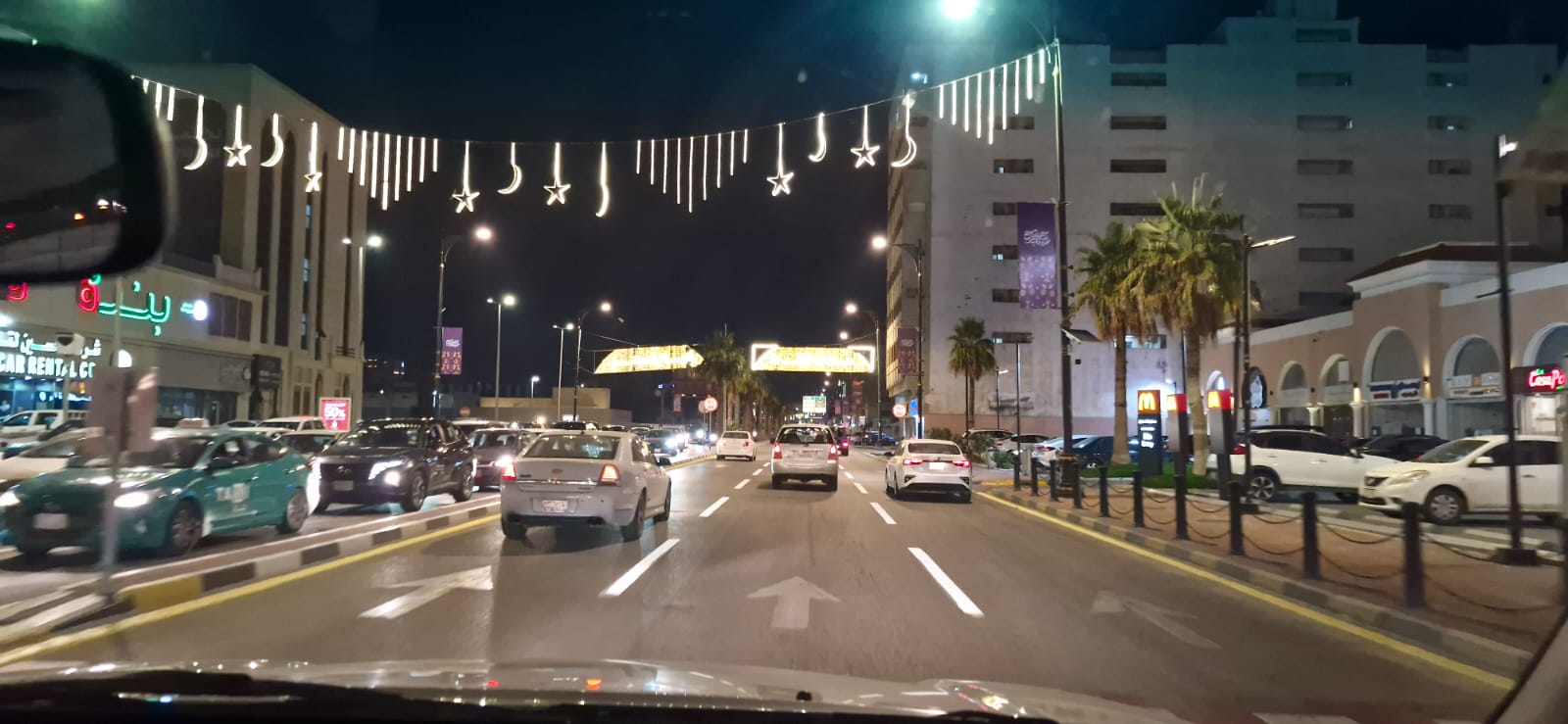 decorative lights on the streets; Photo credit: TCN correspondent[/caption]
decorative lights on the streets; Photo credit: TCN correspondent[/caption]
However, their shifts are different. Amina finishes her work in the afternoon, giving her time to read the Quran and prepare for iftar. On the other hand, Haroon works the night shift, which ends just in time for suhoor.
"After suhoor, I drop Amina off at work. Then, I try to sleep for a few hours, but soon it is time for the afternoon prayer, which is around 11:50 a.m. After praying, I sleep for another couple of hours, and when the alarm rings, I pick up my wife from work. After iftar, I rush to my shift," Haroon explained.
He also said his wife does not drive, as women in Saudi Arabia only gained the right to drive in recent years.
The streets of the city sparkle with vibrant lights, and the shops are bustling with activity. Huge crescent-shaped billboards adorn the city, and hotels, malls and shops stay open all night. Many offer Ramzan special discounts. This is also the time when people who have saved up buy stuff for their children back home.
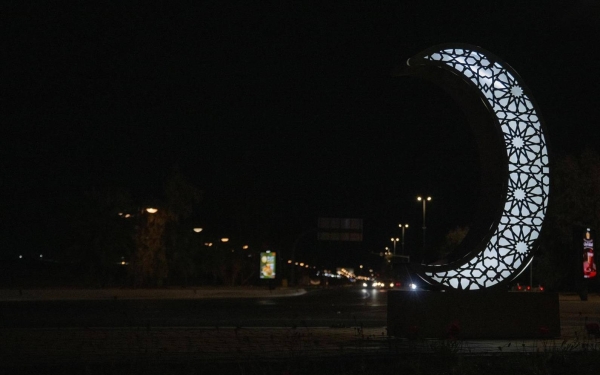 A billboard of the crescent[/caption]
A billboard of the crescent[/caption]
Sadiq, a maintenance worker from Chennai, shared his Ramzan experience. "During Ramzan, I have very little cooking to do. I go to the masjid to break my fast, where we are given an iftar box containing dates, water, laban (a cold drink made with yogurt), fruit pieces, samosas and khabza (a rice dish with chicken or mutton). The meals are enough to satisfy me after iftar. I save some for suhoor. This helps me save money, which I send back home to my family."
He further said residents of his apartment complex often offer him iftar meals during Ramzan.
The Saudi government provides iftar boxes for all 30 days of Ramzan, and in some masjids, generous individuals distribute additional iftar boxes.
"There are people from different countries in these apartments, so I get to taste different dishes," Sadiq said with a smile.
Many men in small jobs, such as sweepers, garbage collectors, construction workers, car washers and salespeople also head to the masjid in their locality to break their fast.
[caption id="attachment_451751" align="aligncenter" width="1200"]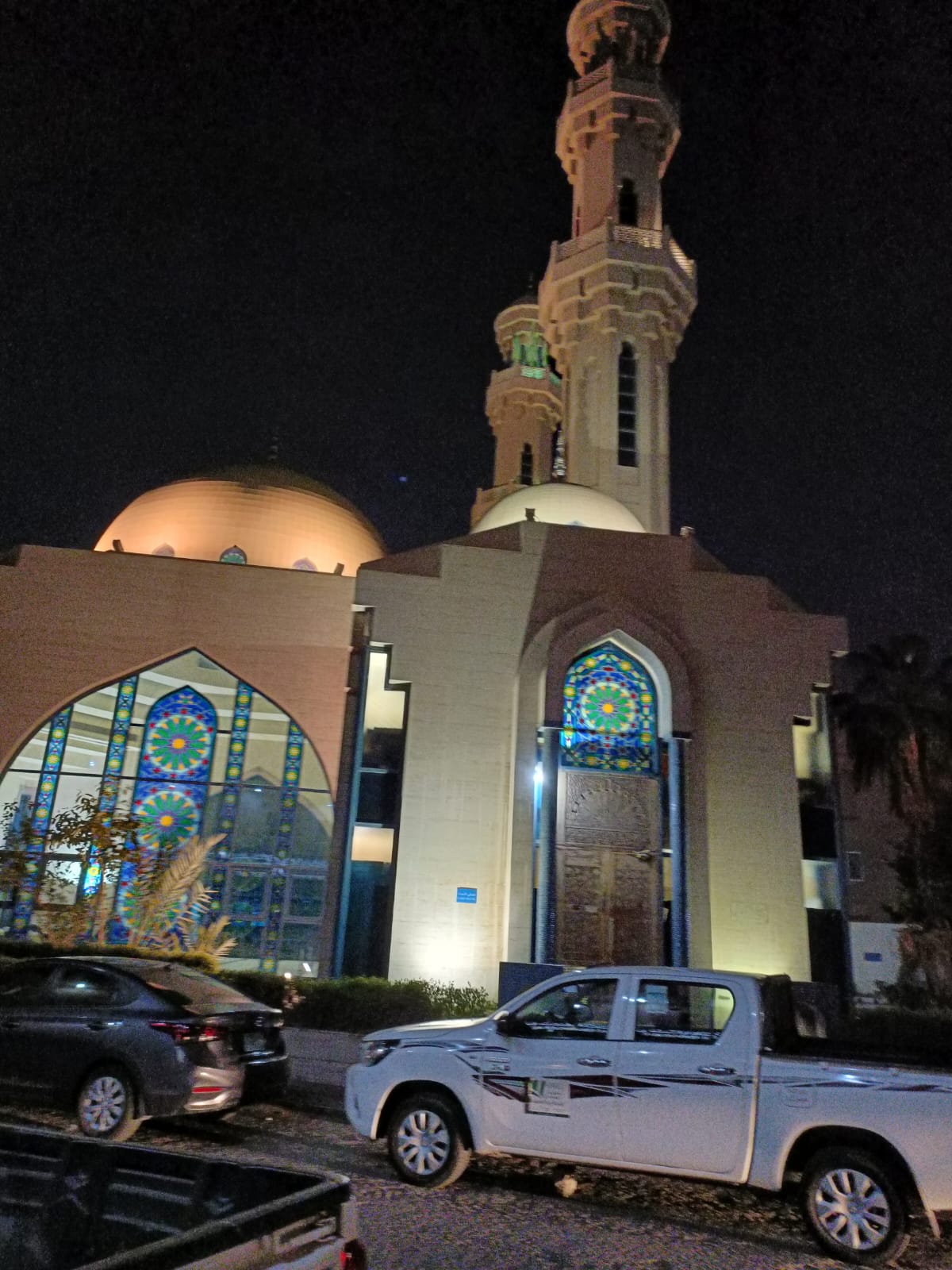 A masjid in Al Khobar; TCN correspondent[/caption]
A masjid in Al Khobar; TCN correspondent[/caption]
"Earlier, we used to eat in the masjid itself, but ever since new orders were introduced, we only get dates and water. The food is now packed, and we take it home to eat," said Faiyaz, a worker. "Yes, we miss home," he added.
For many of those in small jobs, the goal is to save as much as possible since their families are not with them. "One day, we will go back home," said Faiyaz, who hails from a small town in Andhra Pradesh.
In the Gulf, away from the comforts of home, the experience of Ramzan remains marked by resilience and a sense of community. Despite being far from family, these individuals continue to observe their fasts with devotion, forging connections with fellow workers and strangers alike in the spirit of the holy month.
